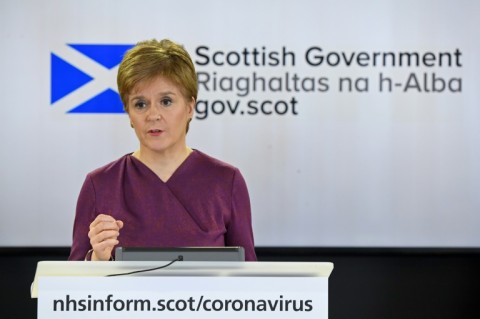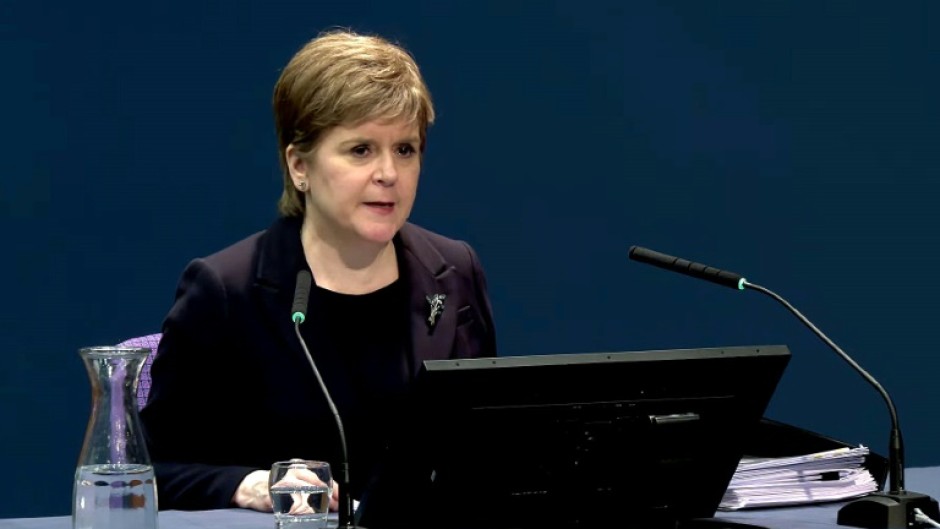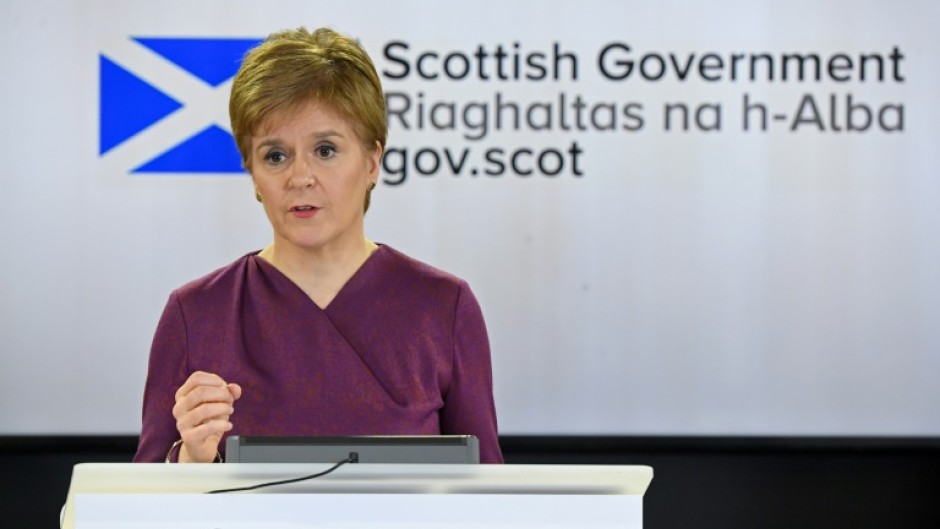Scotland's former first minister Nicola Sturgeon fought back tears on Wednesday as she defended her leadership style and record during the Covid pandemic at a highly anticipated public inquiry appearance.
Giving evidence to the independent probe into the UK's Covid response, Sturgeon denied accusations of political opportunism during the health crisis, insisting she had felt "an overwhelming responsibility to do the best I could".
Sturgeon, who quit as head of Scotland's devolved administration in Edinburgh last year, also maintained her long-running criticisms of former UK leader Boris Johnson.
She told the inquiry that he was not just the wrong person to be in charge during the pandemic but "the wrong person to be prime minister, full stop".
Last week, the inquiry was told that she called Johnson a clown and incompetent in a WhatsApp exchange with her chief of staff in October 2020.
Asked on Wednesday by Jamie Dawson, a lawyer for the inquiry, whether she was "precisely the right first minister for the job", Sturgeon replied: "No."
"I was first minister when the pandemic struck. There's a large part of me (that) wishes I hadn't been," she added, her lip trembling.
"But I was and wanted to be the best first minister I could be during that period. It's for others to judge the extent to which I succeeded."
Contrary to Johnson, Sturgeon's popularity actually soared during the pandemic as she held daily media briefings on Edinburgh's health policy -- a matter that fell under the remit of devolved governments in Scotland, Wales and Northern Ireland.
But she stepped down as Scottish National Party (SNP) leader and first minister last year, saying she lacked the energy to continue after nine years in charge.
- WhatsApp deletions -
Sturgeon denied claims that she politicised the Scottish government's pandemic response, given that her high profile helped bolster the SNP's campaign for independence from the rest of the UK.

"I will absolutely assert that I did not take decisions for political reasons... or that they were influenced in some way by considerations for the constitutional argument," she said.
She added: "I take it very, very personally when people question these motives because I know that the motives were... absolutely in good faith and for the best reasons."
Sturgeon has also come under scrutiny for admitting that she deleted WhatsApp messages sent and received during the outbreak.
In December, Johnson was grilled on why he had failed to provide about 5,000 WhatsApp messages from late January 2020 to June 2020, claiming that the app had "somehow" automatically erased them.
Sturgeon acknowledged that she deleted her messages on the platform but said her use of it for government business was "extremely limited".
Any use, she told the hearing, "would not relate to matters of substantive government decision-making" and was only done after key decisions were properly recorded.
Deleting messages was in line with long-established Scottish government policy not to conduct business on devices such as phones that could be lost or stolen.
"I am certain that the inquiry has at its disposal anything and everything germane to my decision-making during the process and the time period of the pandemic, and the factors underpinning those decisions," she said.


